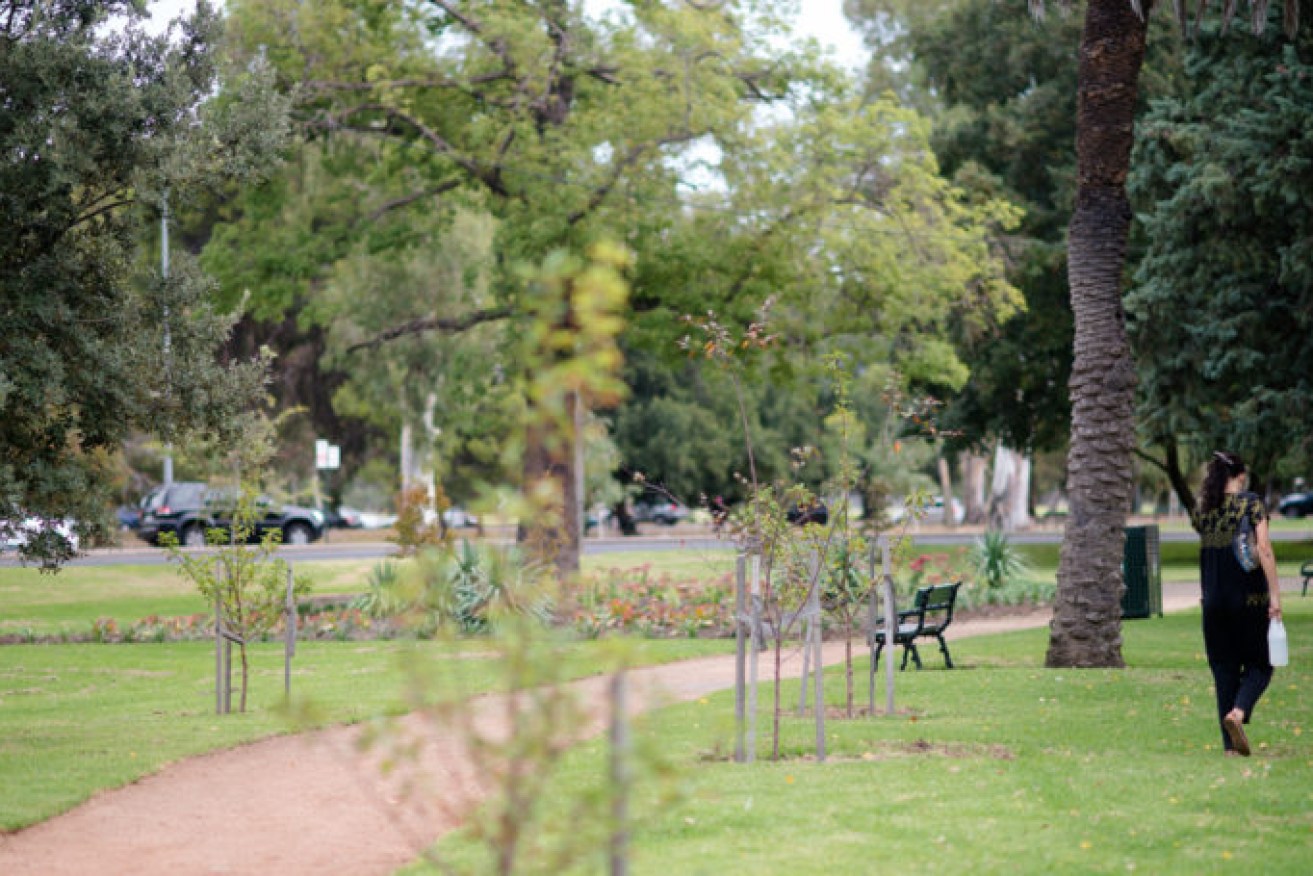National Park City status creates ‘higher expectations’ for park lands protection
The judges of Adelaide’s successful bid to become a globally-recognised National Park City say the title should lead to “higher expectations, accountability and standards” on planning decisions to rezone and commercialise the city’s park lands.


(Photo: Tony Lewis/InDaily)
The UK-based National Park City Foundation announced over the weekend that the South Australian Government’s push to have Greater Adelaide named the world’s second-ever National Park City has been successful, following months of deliberation from a global panel of judges.
The decision revealed at the World Urban Parks Congress sees Adelaide join London as the only two cities to hold the coveted status.
Environment Minister David Speirs, who first flagged the bid in 2019, hailed the foundation’s decision as a “historic moment” for the state.
“Adelaide National Park City status isn’t just another title for our city, it is a trigger to promote and connect people with on-ground action to look after our environment for everyone’s health and wellbeing as well as boost our economy through increased tourism,” Speirs said.
“Over the next few years, through our urban environmental board Green Adelaide, you’ll see some real on-ground action towards the Adelaide National Park City movement to create a cooler, greener and wilder city.”
But Adelaide’s bid attracted vocal criticism from supporters of the city’s park lands, who argued the push “cannot be taken seriously” due to ongoing “attacks” on the urban green belt.
Critics cited the State Government’s push to rezone 71 hectares of the park lands for the new Women’s and Children’s hospital and the 15,000 seat Riverbank Arena as reasons why the bid should be rejected.
The six judges on the “Adelaide National Park City Assessment Team” said they received nearly 30 “letters of objection” from individuals and organisations.
“While many of those people supported the idea of Adelaide becoming a National Park City in principle, serious concerns were raised about potential rezoning and development in the city’s central Parklands,” the judges said in a joint email to campaigners after the decision.
“The assessment team met with campaigners and others who added their voices to these concerns.
“We found those conversations and insights very useful and important.”
The situation is still playing out and part of National Park City status is that it should lead to higher expectations, accountability and standards.
The six judges – consisting of two members of the National Park City Foundation, two from New Zealand’s World Urban Parks organisation, and two from the Salzburg Global Seminar – said that, on balance, Adelaide’s bid had greater support given more than 2200 people have signed onto Adelaide’s National Park City Charter.
“The team are highly sympathetic to the concerns and encourage government to develop policies that properly protect and create nature and recreation spaces in the city,” the judges said.
“We decided to approve the related criteria because, on the specific issue of planning decisions in the park lands, many people we spoke to felt that the National Park City status would create a higher expectation of a delivering greener city and create an environment where the right proposals and decisions were more likely to be made on this and other planning issues.
“The situation is still playing out and part of National Park City status is that it should lead to higher expectations, accountability and standards.”
The judges also said their assessment has “taken into consideration the whole of Adelaide and not just the centre of the city”.
They added: “We do not think a predominantly overseas National Park City assessment team should comment on individual planning applications or attempt to impede local democratic process.”
World Urban Parks CEO Neil McCarthy said the judges’ decision also took into account the support of Kaurna elders for the bid.
“No National Park is perfect and the National Park City movement needs a diversity of approaches to keep challenging our thinking,” he said.
“The need to ensure recognition of Traditional Owners is a firm commitment of World Urban Parks and the leadership and knowledge of Adelaide’s Kaurna both inspires us and gives us hope that cities can be better.
“This is a significant feature of the Adelaide National Park City.”
Conservation Council CEO Craig Wilkins said his organisation was “delighted” with the judges’ decision, but said it is “just the beginning of the journey, not the end”.
“To live up to the title will require a major step up in urban greening and biodiversity,” he said.
“While many good things are happening across the city, our tree canopy cover is still going backwards.
“A big investment in urban greening and tree protection will help convince Adelaide’s citizens that ‘national park city’ is not just an empty title.”
The State Government highlighted its $5 million investment to “green our CBD streets and places”, along with a $5 million project to “re-wild” the River Torrens, as evidence of its green credentials in the Adelaide city centre.
The National Park City Foundation says it hopes to recognise 25 national park cities by 2025.
Among the other cities currently campaigning for the recognition are Berlin, Tokyo, Madrid, Sacramento, Galway, Newcastle and Glasgow.
Green Adelaide said it intends to hold a public celebration to launch the Adelaide National Park City in autumn next year.




